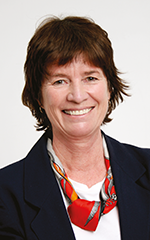

Our recent Sustainability in Manufacturing Industry Guide has made me more aware of the issues affecting the future of energy. So when researchers at Korea University in Seoul announced on 22 July that they had discovered a room temperature superconductor I got interested and decided to investigate. It’s quite a story.
Solid-state physics is not something that goes viral. But that’s what happened when the research team published two papers, still to be peer reviewed, that claimed to have developed the world’s first superconducting material that functions at room temperature and pressure. The compound is called LK-99, and is prepared in a baking process that combines the minerals lanarkite (Pb2SO5) and copper phosphide (Cu3P).
This took the physics community by storm and sparked wild enthusiasm online. The team shared the simple process for creating LK-99, and videos showing how they did it circulated worldwide. Labs everywhere rushed to test the results. Shares in a superconductor company in Seoul surged in value by 400%. The reason for the excitement is that room temperature, ambient pressure superconductors could conduct electricity with no resistance and without losing energy. Currently, to achieve this they have to be cooled to temperatures near absolute zero, or be subjected to huge pressure, so they can only be used in a specialised environment.
Basically, if something uses electricity or magnetism, room temperature superconductors could improve it. They could accelerate the development of a commercially-viable fusion reactor. They could be used to create efficient electricity grids with the ability to transmit electricity over long distances, with no loss of heat. Computer chips made with superconducting materials could be 100 times as efficient as today’s computer chips, which would greatly reduce the cost of data centres. They could result in cheaper medical scanners (the MRI that we know) and better electric motors. Superfast trains could levitate on a superconducting material. According to Science Journal, “this is one of the most sought after goals in all of materials science and condensed matter physics”.
One of the properties of a superconductor is the Meissner effect, which causes it to levitate in a magnetic field. The researchers said LK-99 shows two key signs of superconductivity at ambient pressure and temperature: zero resistance and magnetic levitation. They also uploaded a video of a sample of LK-99 partially levitating. However, levitation could just mean that the material is diamagnetic – a property found in many materials. Since the papers were published laboratories around the world have been trying to replicate the findings. So far the most credible attempts have found that LK-99 is not superconductive. The Korean Society of Superconductivity and Cryogenics concluded that LK-99 is not a superconductor because it does not show the Meisnner effect.
Meanwhile, researchers at Huazhong University of Science and Technology in China posted a video on 1 August showing magnetic levitation of a LK-99 sample at multiple different angles. This suggests it is a perfect diamagnet, a rarer property than simple diamagnetism, and one associated with superconductors. In two days the video had over nine million views and is number one on the most trending list on Bilibili, a Chinese video sharing website. And theorists at several top universities worldwide have done calculations to explore what the properties of LK-99 might be, and found that it could be superconductive at room temperature.
In all the twists, turns and reversals in this social media fuelled story, the boom and bust cycle of LK-99 is a classic demonstration of science in action. The scientific process is working as it should. So what happens now? The processes of science swing into action. Experts will closely review the papers. Researchers at other laboratories will attempt to reproduce the experiments described in the papers, and see whether they end up with a room temperature superconductor. This is needed to prove the validity and reliability of the claims. If they do, it would be one of the most important advances in physics and materials engineering in decades. If they don’t, it’s back to the drawing board.
It occurred to me that this whole process is not even a month old, thanks to social media. It makes me think of the years it took to get scientific research through in my time (though that was quite a while ago). It also looks to me like they are not going to get there this time. I don’t know how the science world treats mavericks, but my opinion is that these researchers deserve full credit for taking the leap and setting in motion a whole new direction of research that, who knows, could get to the holy grail.
| Tel: | +27 11 543 5800 |
| Email: | [email protected] |
| www: | www.technews.co.za |
| Articles: | More information and articles about Technews Publishing (SA Instrumentation & Control) |

© Technews Publishing (Pty) Ltd | All Rights Reserved